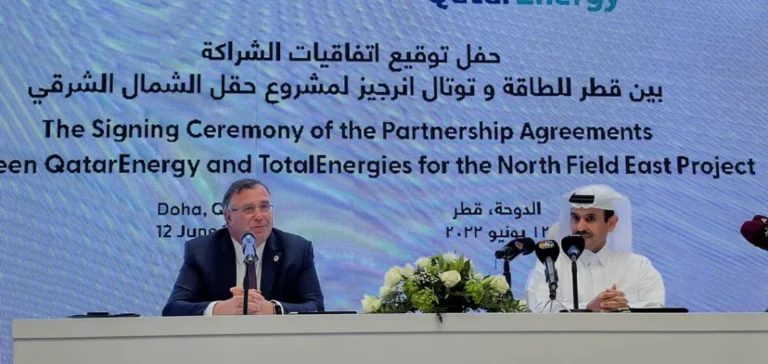QatarEnergy, TotalEnergies and Basra Oil Company have announced the start of construction on the two final major infrastructures of Iraq’s strategic Gas Growth Integrated Project (GGIP). The announcement, made during a ceremony held in Baghdad, marks a new stage in the country’s energy development with the implementation of the Common Seawater Supply Project (CSSP) and Phase 2 of the Artawi oil field redevelopment.
The CSSP is designed to treat and transport 5 million barrels of seawater per day to Iraq’s main southern oil fields. The system aims to replace freshwater usage from the Tigris and Euphrates rivers, freeing up to 250,000 cubic metres per day for other uses. The facility will be operated by Basra Oil Company.
Scaling up oil production capacity
The second phase of the Artawi project is expected to raise the oil field’s production capacity to 210,000 barrels per day by 2028. This development is part of a broader objective to position the site as one of the lowest-emission oil production locations in the country. Artawi Phase 2 completes a series of investments aimed at stabilising Iraq’s oil output while harnessing its associated gas resources.
QatarEnergy holds a 25% stake in the consortium, TotalEnergies operates the project with a 45% share, and Basra Oil Company holds the remaining 30%. The projects are part of a strategic cooperation between the companies and the Iraqi government, reinforced through a joint declaration signed with local authorities.
Targeting recovery of flared gas
The GGIP, with total investments exceeding AED47.75bn ($13bn), also includes the recovery of gas currently flared at three oil fields in southern Iraq. This gas will be used to supply power plants, reducing reliance on electricity imports and improving national energy security.
Other components of the programme include the development of a 1 GWac (1.25 GWp) solar park and the installation of seawater treatment systems for pressure maintenance across multiple oil fields. These initiatives aim to modernise Iraq’s energy infrastructure while boosting domestic electricity production.






















